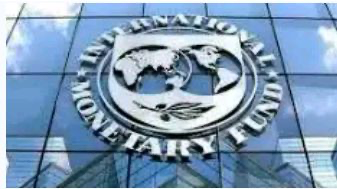
Nigeria has officially been removed from the International Monetary Fund’s (IMF) list of debtor nations, marking the first time in decades the country carries no outstanding credit obligations to the global lender.
According to the IMF’s latest “Total IMF Credit Outstanding” report dated May 6, Nigeria’s name is conspicuously absent from the roster of 91 indebted nations that collectively owe $117.8 billion. This follows a systematic debt repayment strategy that saw Nigeria reduce its IMF obligations from $1.61 billion in July 2023 to full settlement this month.
Presidential aide O’tega Ogra confirmed the milestone on social media, hailing it as evidence of the Tinubu administration’s fiscal discipline. “We’ve transitioned from reactive borrowing to strategic financial management,” he stated, noting that while Nigeria retains IMF membership, future engagements would be “partnership-based rather than necessity-driven.”
The development comes eight months after Nigeria received $3.4 billion in COVID-19 Rapid Financing Instrument (RFI) during the pandemic. An IMF official who spoke anonymously acknowledged Nigeria’s accelerated repayment schedule but cautioned that the Fund’s recent Article IV consultation had identified lingering macroeconomic uncertainties.
Financial analysts attribute the debt clearance to multiple factors:
- Strategic use of Special Drawing Rights (SDR) conversions
- Improved FX market operations following subsidy removal
- CBN’s cessation of deficit financing
The IMF had recently praised Nigeria’s reform agenda, particularly fuel subsidy removal and forex market liberalization, while urging continued inflation control measures. With this debt milestone, Nigeria joins the league of African nations like Botswana and Seychelles currently carrying zero IMF credit obligations.
Economists suggest the clearance could improve Nigeria’s sovereign credit ratings but warn that volatile oil prices and global economic headwinds necessitate sustained fiscal prudence. As Statisense data indicates, Nigeria’s IMF debt trajectory shows a 70% reduction in 18 months – from $933 million last July to full repayment this May.
The Finance Ministry is expected to issue an official statement shortly, with sources indicating plans to redirect debt service payments towards critical infrastructure projects. This development marks a significant turnaround for Africa’s largest economy, which first appeared on IMF debtor lists during the 1980s structural adjustment era. no








